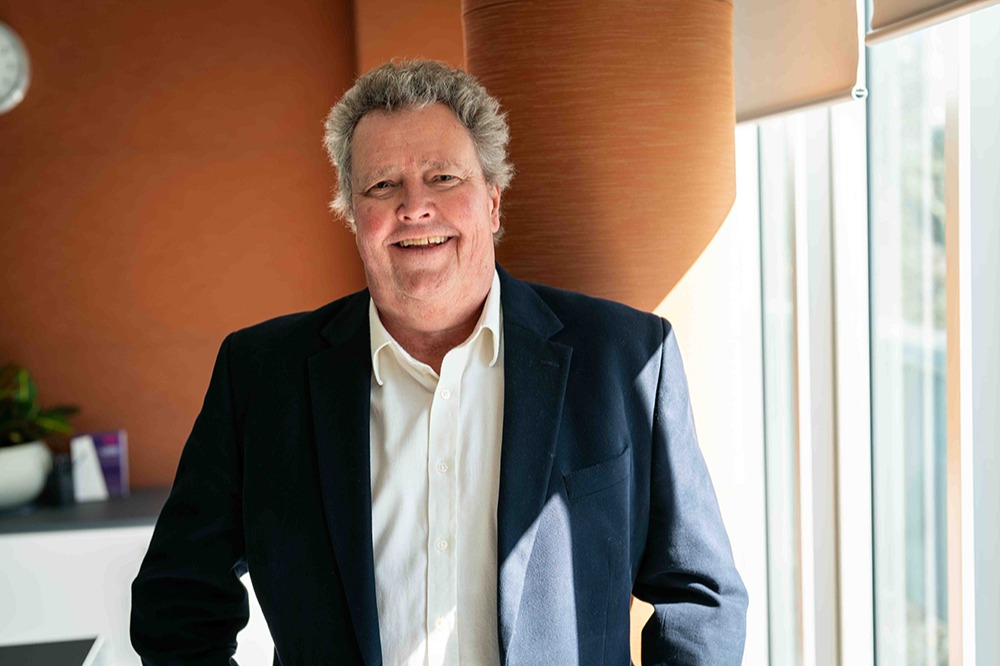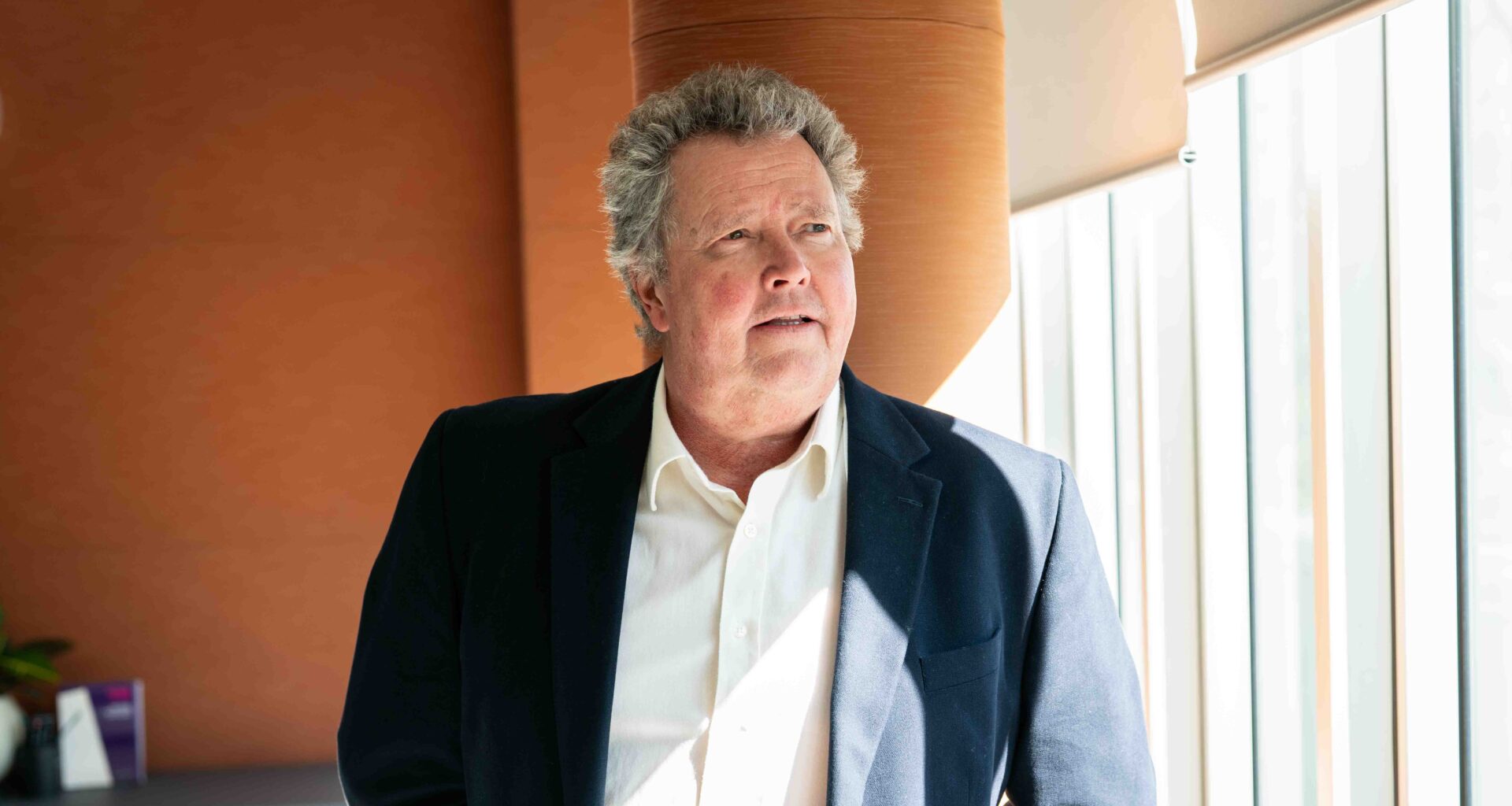Mike O’Shea has been the chief executive of an asset management business since before the Berlin Wall came down, before anyone had used email to communicate the banalities of business life, and when people had to listen to that year’s best-selling single, Mistletoe and Wine by Cliff Richard, on a tape.
But when we meet O’Shea, still ensconced as chief executive of the firm he has run since 1988, Premier, via its successor firm the Aim-listed Premier Miton, more than 30 years later, he still brims with ideas and strategies.
O’Shea read economics at Cardiff University and after a brief diversion joined Premier in 1986, then a Guildford-based advice firm with what would nowadays be called a model portfolio service attached.
In 1988 he and colleagues split off the investment management unit from the advice business, running the assets of their former employer and other advice firms, and growing the company via a series of small acquisitions and product launches, eventually embracing the launch of its own fund management company in 2006.
He started as joint managing director of the spun off business, then became chief executive.
Perhaps unusually for someone with an economics degree, O’Shea says he regards “everyone as a salesman”.

What not to do when selling an advice business
The outfit he now leads, Premier Miton, has assets under management of £11bn, and each report and account contains references from him of a desire to do more deals, following on from the acquisition of Miton five years ago, and of Tellworth at the end of 2023.
Asset management deals are notoriously difficult to get right but, ever the salesman, O’Shea reels off the reasons why he thinks he has bucked the trend with those transactions.
He says his priority when looking for firms to buy is: “Do they offer us scale for an existing product we have? Do they offer us new products? Or, do they offer us a route to potential new clients?
“Now the thing with Tellworth is, they ticked two of those boxes. They have an absolute return fund, which we don’t, and their client base is family office and institutional focused, which Premier Miton’s was not, so it created the opportunity for cross-selling.”
That absolute return fund has approximately doubled in size since Premier Miton acquired Tellworth.
Of the transaction which brought Premier and Miton together, he notes Premier’s funds had traditionally been bought by IFAs, while Miton was more wealth manager focused, so there were opportunities to cross-sell.
O’Shea says he continues to look out for firms to buy, if they meet the above criteria.

“Building a business was something that always appealed to me.”© (Carmen Reichman/FT)
But in a world where passive funds gain ground constantly, what is the value in owning active management businesses, and can they ever grow?
O’Shea says passive is here to stay, and will likely comprise a significant part of most client portfolios, but that active funds can grow if they are “distinctive”.
He adds: “There is no point in having a fund that calls itself active but has holdings that don’t deviate much from an index, that’s why the funds here have to have something different about them.
“But I would also say that while passive can play an important role, I can’t see how a wealth manager is adding any value for their clients if they just buy a passive fund.

Will active management fight back?
“If you just owned a passive US fund this year for example, it hasn’t been a great outcome. And I think if you are a wealth manager who only uses passive funds, then you have to be very good at the macro, and actually it is very hard to be very good at the macro.”
O’Shea says part of the reason for the growth of passive strategies, rather than just investment performance, is the regulatory perspective.
He says: “Post the global financial crisis, there seems to slightly be the attitude now that risk is bad, and that we need to regulate away any risk in markets. But the reality is that it is risk that drives return.
“We certainly need to regulate bad behaviour, but if the regulatory environment is hurting the UK’s capital markets, then maybe it is reasonable to have a look at that.”
Thinking strategy
Premier Miton has long had a reputation as a firm that has an over reliance on a small number of investment strategies, such as multi-manager and UK equities, but O’Shea says such concentration would be a major problem for an asset management business, particularly as demand for passives reduces the capacity for individual active funds to gain scale.
With this in mind, he says Premier Miton’s current business has 30 per cent of its assets in global equity funds, 20 per cent in UK equity funds, 20 per cent in bonds, 20 per cent in multi-asset and 10 per cent in absolute return strategies.
The bulk of the absolute return money came through the acquisition of Tellworth, with the absolute return fund acquired as part of that deal roughly doubled in size in the 14 or so months since it became part of Premier Miton.
He says the stability of that asset mix helps the firm, but also helps the individual fund managers, as they will not come under pressure to change their approach if the firm happens to be struggling.
Mike O’Shea career timeline
-
1985: Joined Premier Asset Management to develop the asset management business of the company.
-
1988: One of the founding directors of Premier Fund Managers Limited.
-
2005: Appointed chief executive of Premier Asset Management.
-
2019: Appointed chief executive of Premier Miton Group plc following the merger of Premier Asset Management Group plc and Miton Group plc.
In addition to the rise of passive strategies, another challenge faced by asset managers is the consolidation and outsourcing trend within the advice and wealth management space.
This has made it more difficult for new funds to gain assets when they launch, as instead of finding say, 20 IFA firms to each commit £1mn of client assets, the number of fund buyers for those 20 firms may be just one or two, as the IFAs outsource the investment management function or get acquired by a consolidator.
Bigger firms tend to make bigger investments, so instead of the aforementioned £1mn allocation, it could be a minimum allocation of £50mn, with a reluctance to commit capital of that quantum to a small, or less established fund, making it harder for new products to come to market.
O’Shea says consolidation has long been a part of the market.
He remembers when the predecessor firm of Investec was three different businesses, prior to being acquired by Investec, and prior to Investec being acquired by Rathbones.

Nine key elements for investing in uncertain times
His view is that funds that are distinctive in their approach can still launch, and that ultimately the top-performing funds will attract the assets.
Despite the changing industry trends, there has not been a sharp reduction in the number of equity funds available to UK advisers, and their clients.
The investment trust universe has seen corporate activity reduce the number of sub-scale and sub-standard funds, but the open-ended fund universe has yet to witness such darwinism.
O’Shea says it will happen in the near future; as clients move their capital away from the laggards, the fund providers will respond by closing funds.
Premier Miton has offices in Guildford and next to the London Stock Exchange. A large organisation now, but he still remembers when he helped create the original Premier business, which was in Guildford.
He says: “Building a business was something that always appealed to me, and in the very early days it was great because job functions weren’t that important, it was everyone mucking in together.”
David Thorpe is senior investment editor at FT Adviser
